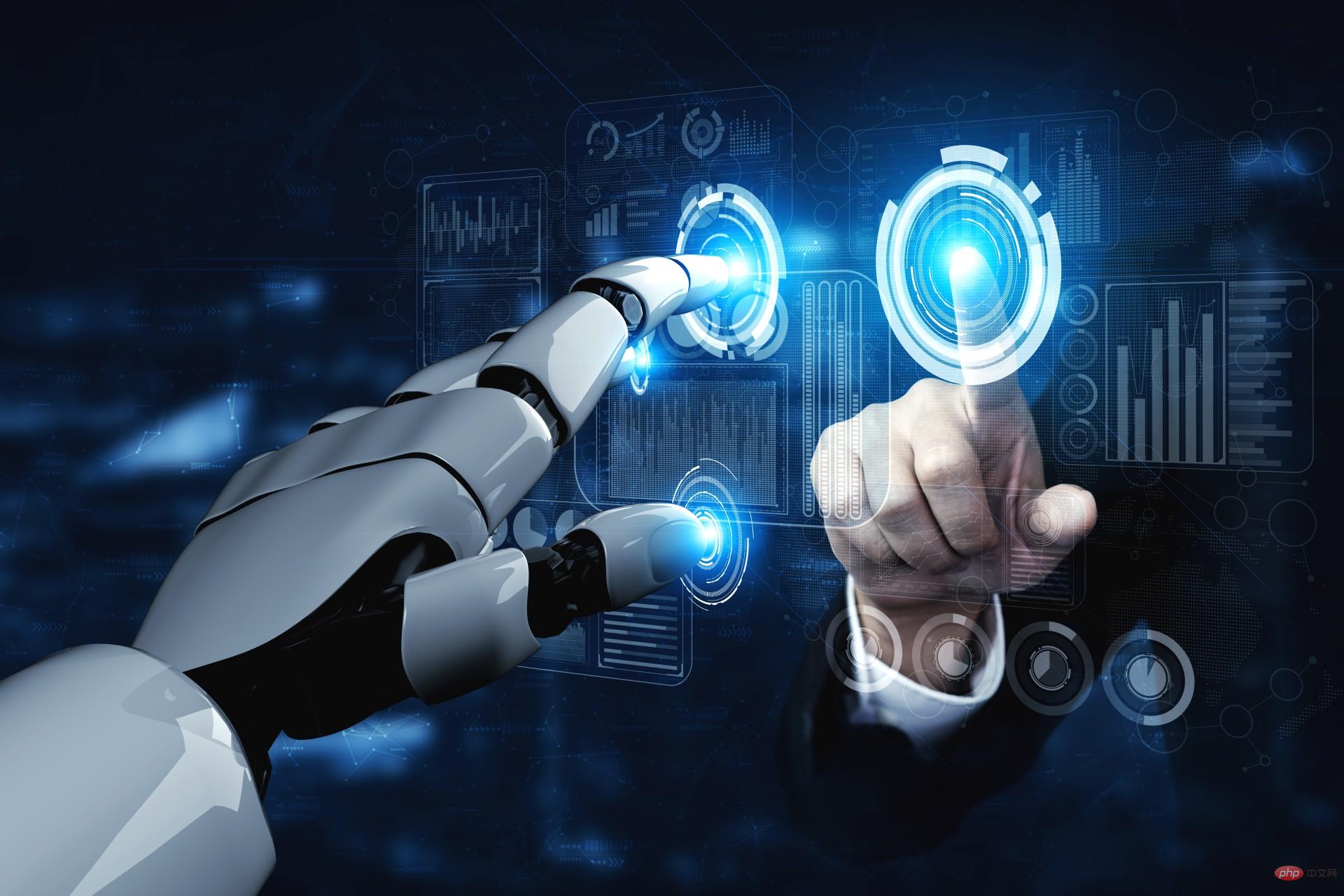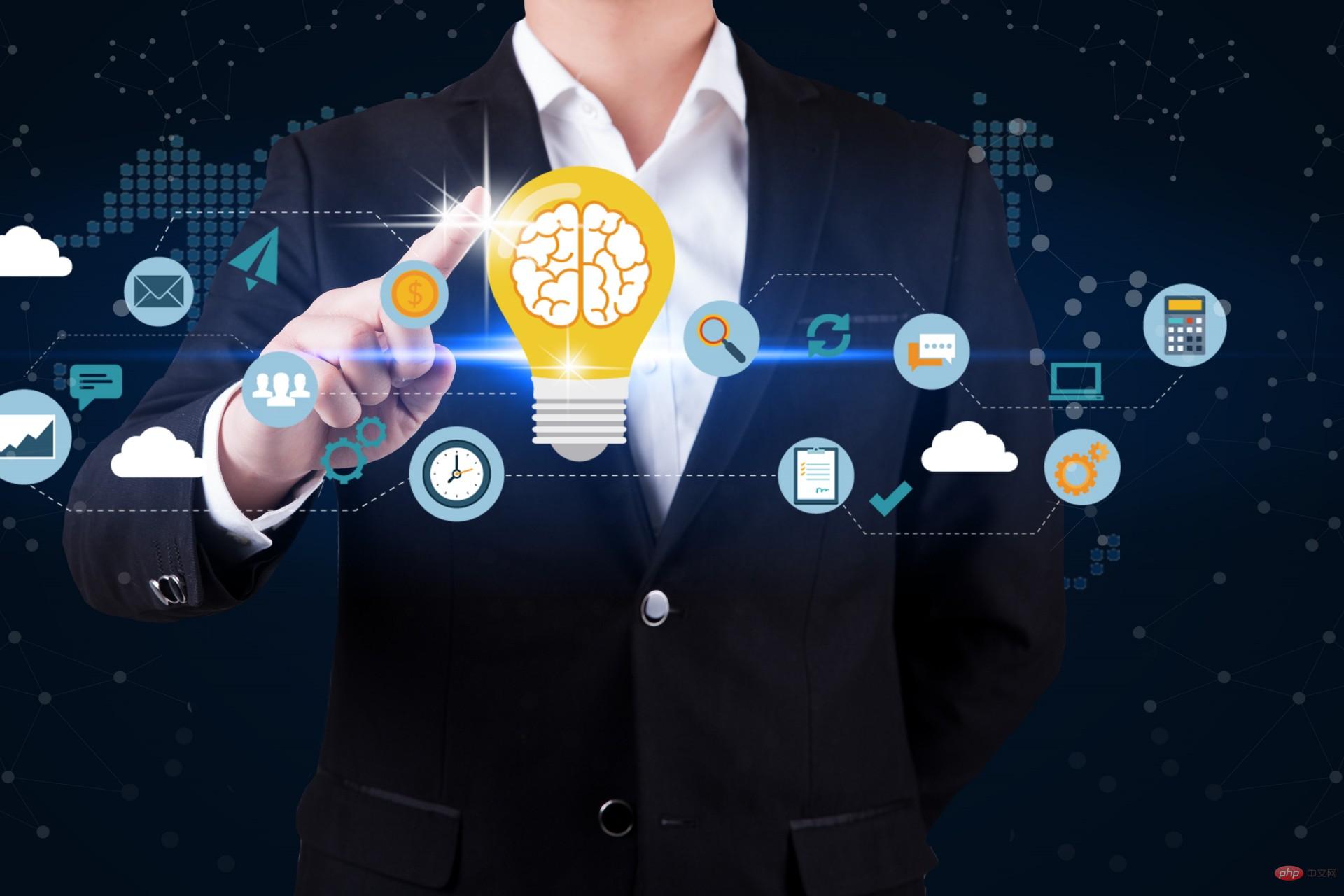 Technology peripherals
Technology peripherals AI
AI AI in the culinary world: revolutionizing restaurant operations and customer experience
AI in the culinary world: revolutionizing restaurant operations and customer experience
Artificial intelligence (AI) is rapidly integrating with the catering industry to reshape dining experience and operational efficiency. From automating kitchen processes to personalizing customer interactions, AI plays an important role in the restaurant business. This article will take an in-depth look at how restaurants are leveraging AI tools and the role that AI technology may play in the industry in the future.
AI Application in Customer Service and Interaction
Today, AI has been widely integrated and significantly improved the customer service experience in restaurants. For example, chatbots are increasingly being used to handle bookings and answer customer questions. Recently, McDonald's just acquired the AI company Apprente to integrate voice-based AI technology into drive-thru restaurants to achieve faster and more accurate ordering services. At the same time, Domino's Pizza uses AI assistant Dom to handle online orders, which simplifies the ordering process and improves customer satisfaction. In addition to customer service, AI is also playing an active role in personalized dining. Restaurants can use AI systems to analyze customer data and provide personalized recommendations and promotion guidance. A typical example of this is Starbucks' Deep Brew program, which provides customers with tailor-made meal recommendations based on their past purchases and preferences.
AI Application in Kitchen Operation and Management
In the kitchen, AI is assisting in optimizing operations and food preparation processes. For example, Zume Pizza uses AI-driven robots to assist in meal preparation, improving efficiency and product stability. These robots can improve pizza quality by perfectly applying sauce and assessing cooking times. In addition, inventory management is another application area where AI has made significant progress. The AI system can evaluate inventory needs based on historical data and future orders, helping restaurants control inventory within a reasonable range. Dishoom, a restaurant chain headquartered in London, used AI inventory management tools to successfully reduce food damage reports by 20%.
AI Application in Menu Optimization and Meal Design
AI is also revolutionizing menu design by analyzing customer preferences and market trends. Machine algorithm suggestions will suggest various menu adjustments that are more attractive to customers, thereby boosting sales. For example, a Japanese sushi restaurant used AI to redesign its menu based on customer feedback and found that customer satisfaction increased by 10%. In meal design, AI is also helping chefs create novel recipes. Chef Watson built by IBM is such an AI system that will suggest ingredient combinations that are often overlooked by human chefs, thereby creating unique recipes. This innovation has provided many high-end restaurants with novel and well-received dishes, such as chocolate Austrian rolls and Vietnamese apple kebabs.
AI Application in Marketing and Customer Analysis
Marketing is another vertical area where AI has great value for the catering industry. AI systems can analyze customer data and create targeted marketing campaigns. For example, the American restaurant chain Chili’s uses AI to analyze customer data and compile personalized marketing messages to increase customer engagement and restaurant sales. At the same time, AI can also help restaurants improve services through customer feedback analysis. AI algorithms analyze comments and feedback on various platforms and quickly provide actionable insights. TGI Friday has established an AI-driven marketing platform that can analyze customer preferences and opinions and significantly improve its marketing strategy and customer experience.
The future potential of AI in the culinary world
Looking to the future, AI is expected to further change the entire catering industry. Virtual reality (VR) and augmented reality (AR) are leading a new trend in immersive dining: restaurants will use AI and VR/AR to create immersive dining experiences, such as virtual winery tours to participate in wine tastings or themed dinners. In addition, AI-powered personal diet assistants will also be of great help. Imagine an AI system analyzing our past eating habits and suggesting the best recipes. These personal dietary assistants can help us manage inclusion and health by providing suggested dishes based on the user's health goals or physical limitations, ultimately bringing great benefits to society as a whole. In addition, the machine can also provide automated quality control functions, including using AI technology to carry out continuous quality control in the kitchen to ensure that every dish meets high standards. Of course, AI also has more traditional use cases, such as restaurants using AI to carry out predictive analysis and trend inference. Future AI systems will be very good at predicting upcoming flavor changes, helping restaurants stay ahead of the curve in menu design. Finally, our future eating experiences may also be based on robot assistance. In the future, restaurants may increasingly be equipped with AI-driven robots to assist in serving food and even cook in conjunction with chefs, thereby bringing a unique dining experience.
The integration of AI technology and the catering industry is not only a trend, but also a transformative shift, and is redefining the dining experience and industry operating efficiency. From enhancing customer service to revolutionizing kitchen operations, AI has become another powerful tool in the world of cooking. As technology continues to advance, AI will have unlimited potential in the restaurant environment. Not only does it help improve efficiency and customer satisfaction, it also delivers an unprecedented dining experience. In summary, whoever is willing to actively embrace AI technology can provide more excellent catering services and ultimately maintain a competitive advantage in a highly competitive and rapidly developing industry.
The above is the detailed content of AI in the culinary world: revolutionizing restaurant operations and customer experience. For more information, please follow other related articles on the PHP Chinese website!
 2023年机器学习的十大概念和技术Apr 04, 2023 pm 12:30 PM
2023年机器学习的十大概念和技术Apr 04, 2023 pm 12:30 PM机器学习是一个不断发展的学科,一直在创造新的想法和技术。本文罗列了2023年机器学习的十大概念和技术。 本文罗列了2023年机器学习的十大概念和技术。2023年机器学习的十大概念和技术是一个教计算机从数据中学习的过程,无需明确的编程。机器学习是一个不断发展的学科,一直在创造新的想法和技术。为了保持领先,数据科学家应该关注其中一些网站,以跟上最新的发展。这将有助于了解机器学习中的技术如何在实践中使用,并为自己的业务或工作领域中的可能应用提供想法。2023年机器学习的十大概念和技术:1. 深度神经网
 人工智能自动获取知识和技能,实现自我完善的过程是什么Aug 24, 2022 am 11:57 AM
人工智能自动获取知识和技能,实现自我完善的过程是什么Aug 24, 2022 am 11:57 AM实现自我完善的过程是“机器学习”。机器学习是人工智能核心,是使计算机具有智能的根本途径;它使计算机能模拟人的学习行为,自动地通过学习来获取知识和技能,不断改善性能,实现自我完善。机器学习主要研究三方面问题:1、学习机理,人类获取知识、技能和抽象概念的天赋能力;2、学习方法,对生物学习机理进行简化的基础上,用计算的方法进行再现;3、学习系统,能够在一定程度上实现机器学习的系统。
 超参数优化比较之网格搜索、随机搜索和贝叶斯优化Apr 04, 2023 pm 12:05 PM
超参数优化比较之网格搜索、随机搜索和贝叶斯优化Apr 04, 2023 pm 12:05 PM本文将详细介绍用来提高机器学习效果的最常见的超参数优化方法。 译者 | 朱先忠审校 | 孙淑娟简介通常,在尝试改进机器学习模型时,人们首先想到的解决方案是添加更多的训练数据。额外的数据通常是有帮助(在某些情况下除外)的,但生成高质量的数据可能非常昂贵。通过使用现有数据获得最佳模型性能,超参数优化可以节省我们的时间和资源。顾名思义,超参数优化是为机器学习模型确定最佳超参数组合以满足优化函数(即,给定研究中的数据集,最大化模型的性能)的过程。换句话说,每个模型都会提供多个有关选项的调整“按钮
 得益于OpenAI技术,微软必应的搜索流量超过谷歌Mar 31, 2023 pm 10:38 PM
得益于OpenAI技术,微软必应的搜索流量超过谷歌Mar 31, 2023 pm 10:38 PM截至3月20日的数据显示,自微软2月7日推出其人工智能版本以来,必应搜索引擎的页面访问量增加了15.8%,而Alphabet旗下的谷歌搜索引擎则下降了近1%。 3月23日消息,外媒报道称,分析公司Similarweb的数据显示,在整合了OpenAI的技术后,微软旗下的必应在页面访问量方面实现了更多的增长。截至3月20日的数据显示,自微软2月7日推出其人工智能版本以来,必应搜索引擎的页面访问量增加了15.8%,而Alphabet旗下的谷歌搜索引擎则下降了近1%。这些数据是微软在与谷歌争夺生
 荣耀的人工智能助手叫什么名字Sep 06, 2022 pm 03:31 PM
荣耀的人工智能助手叫什么名字Sep 06, 2022 pm 03:31 PM荣耀的人工智能助手叫“YOYO”,也即悠悠;YOYO除了能够实现语音操控等基本功能之外,还拥有智慧视觉、智慧识屏、情景智能、智慧搜索等功能,可以在系统设置页面中的智慧助手里进行相关的设置。
 人工智能在教育领域的应用主要有哪些Dec 14, 2020 pm 05:08 PM
人工智能在教育领域的应用主要有哪些Dec 14, 2020 pm 05:08 PM人工智能在教育领域的应用主要有个性化学习、虚拟导师、教育机器人和场景式教育。人工智能在教育领域的应用目前还处于早期探索阶段,但是潜力却是巨大的。
 30行Python代码就可以调用ChatGPT API总结论文的主要内容Apr 04, 2023 pm 12:05 PM
30行Python代码就可以调用ChatGPT API总结论文的主要内容Apr 04, 2023 pm 12:05 PM阅读论文可以说是我们的日常工作之一,论文的数量太多,我们如何快速阅读归纳呢?自从ChatGPT出现以后,有很多阅读论文的服务可以使用。其实使用ChatGPT API非常简单,我们只用30行python代码就可以在本地搭建一个自己的应用。 阅读论文可以说是我们的日常工作之一,论文的数量太多,我们如何快速阅读归纳呢?自从ChatGPT出现以后,有很多阅读论文的服务可以使用。其实使用ChatGPT API非常简单,我们只用30行python代码就可以在本地搭建一个自己的应用。使用 Python 和 C
 人工智能在生活中的应用有哪些Jul 20, 2022 pm 04:47 PM
人工智能在生活中的应用有哪些Jul 20, 2022 pm 04:47 PM人工智能在生活中的应用有:1、虚拟个人助理,使用者可通过声控、文字输入的方式,来完成一些日常生活的小事;2、语音评测,利用云计算技术,将自动口语评测服务放在云端,并开放API接口供客户远程使用;3、无人汽车,主要依靠车内的以计算机系统为主的智能驾驶仪来实现无人驾驶的目标;4、天气预测,通过手机GPRS系统,定位到用户所处的位置,在利用算法,对覆盖全国的雷达图进行数据分析并预测。


Hot AI Tools

Undresser.AI Undress
AI-powered app for creating realistic nude photos

AI Clothes Remover
Online AI tool for removing clothes from photos.

Undress AI Tool
Undress images for free

Clothoff.io
AI clothes remover

AI Hentai Generator
Generate AI Hentai for free.

Hot Article

Hot Tools

Dreamweaver Mac version
Visual web development tools

VSCode Windows 64-bit Download
A free and powerful IDE editor launched by Microsoft

MinGW - Minimalist GNU for Windows
This project is in the process of being migrated to osdn.net/projects/mingw, you can continue to follow us there. MinGW: A native Windows port of the GNU Compiler Collection (GCC), freely distributable import libraries and header files for building native Windows applications; includes extensions to the MSVC runtime to support C99 functionality. All MinGW software can run on 64-bit Windows platforms.

PhpStorm Mac version
The latest (2018.2.1) professional PHP integrated development tool

SAP NetWeaver Server Adapter for Eclipse
Integrate Eclipse with SAP NetWeaver application server.






